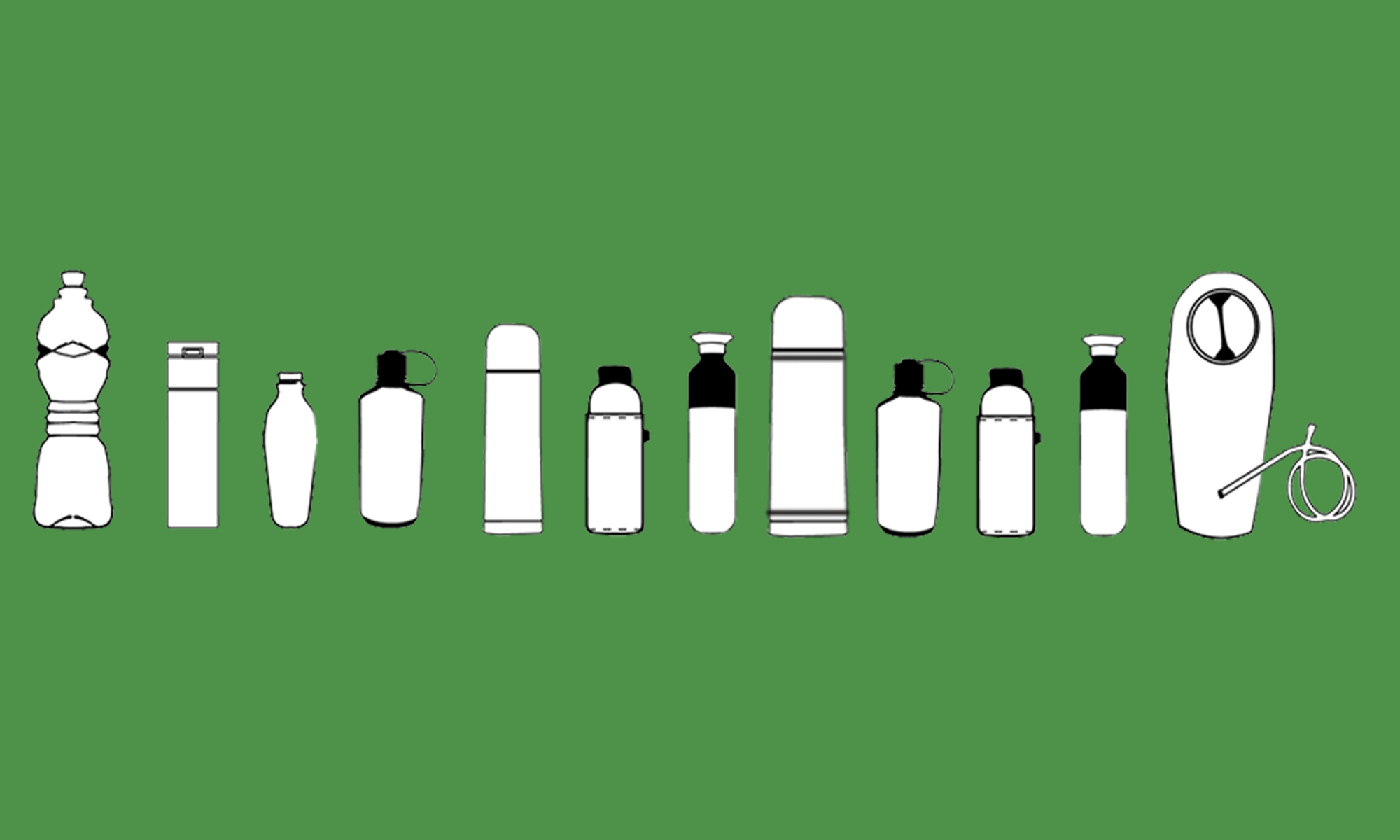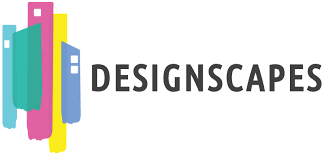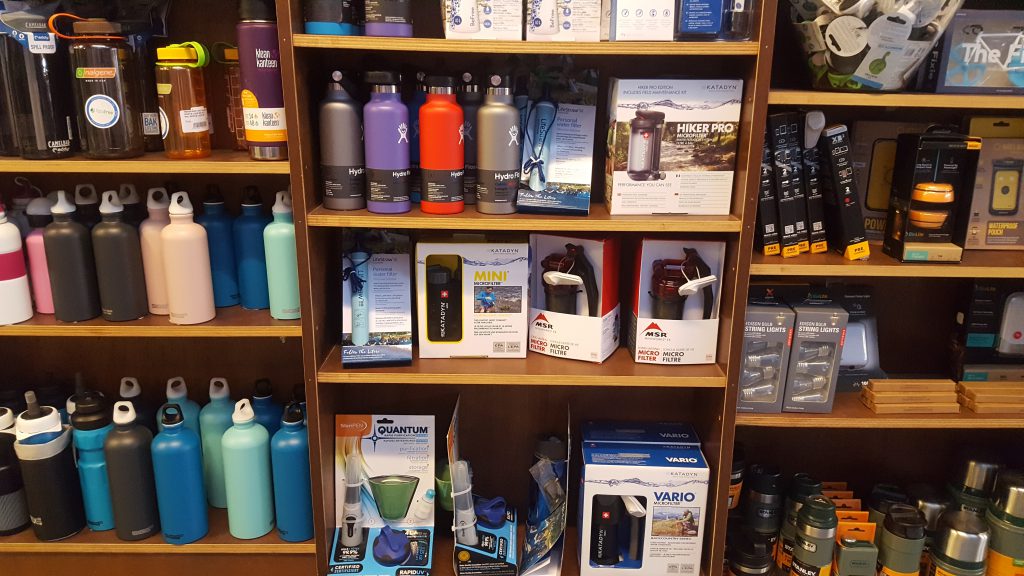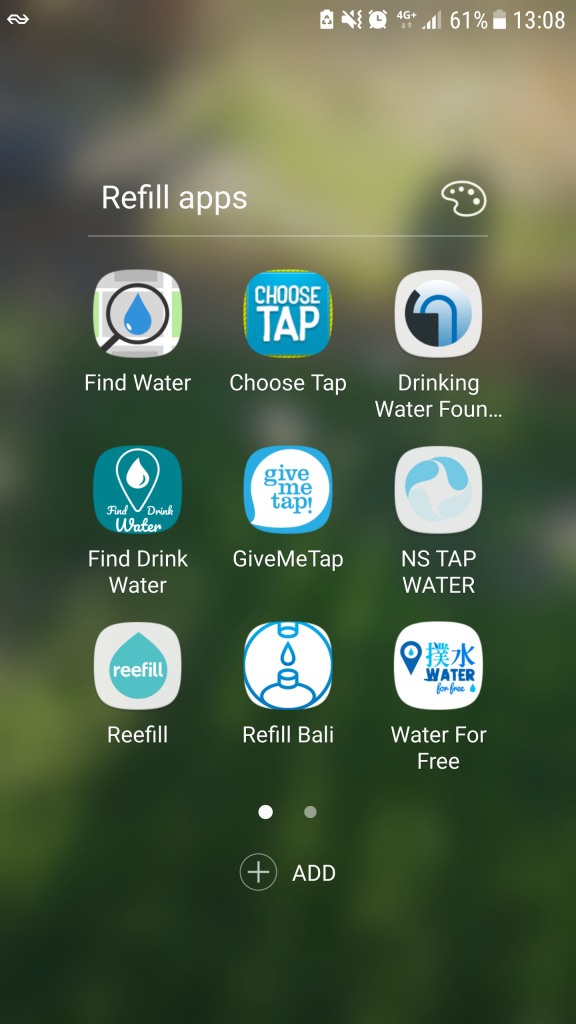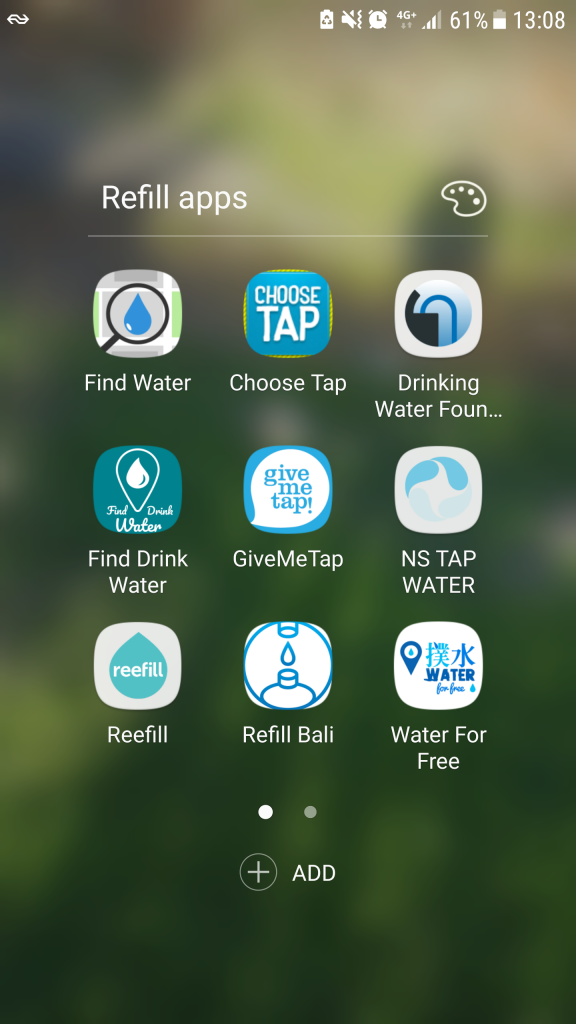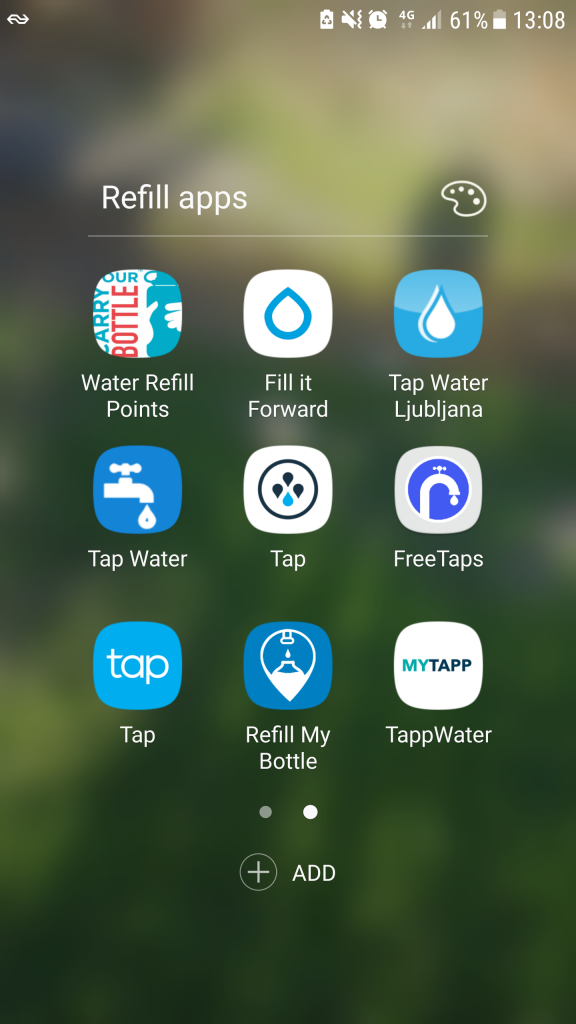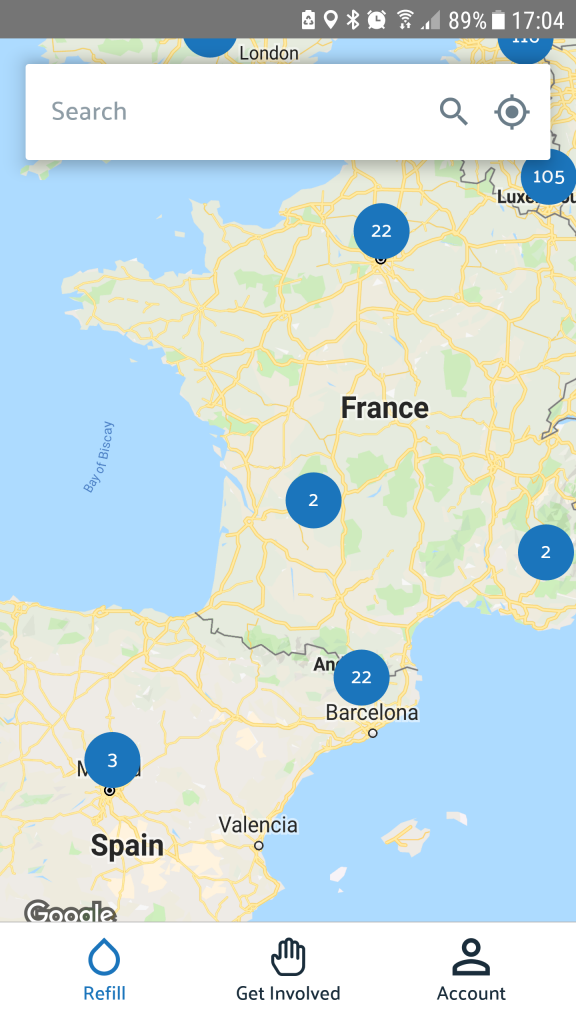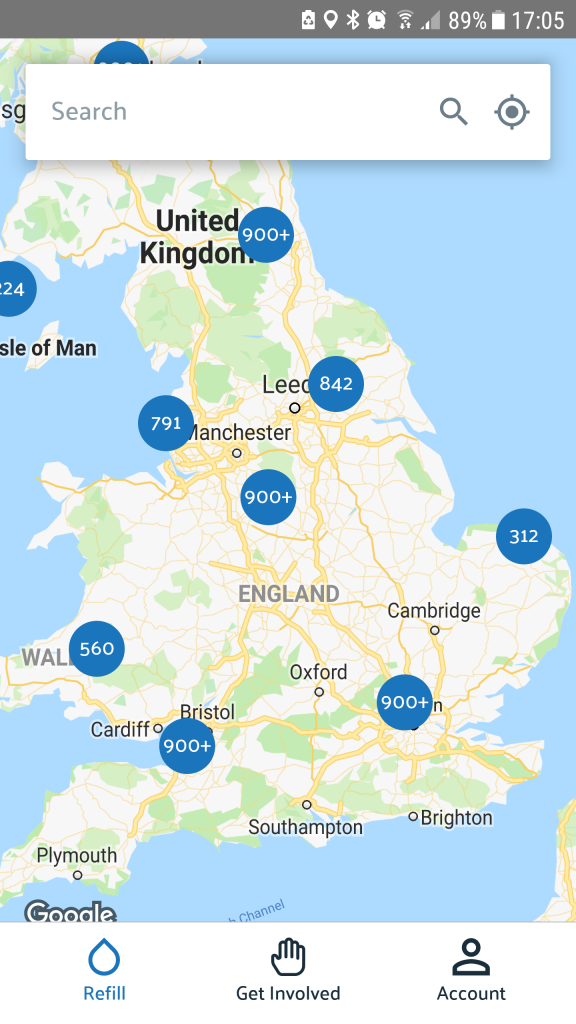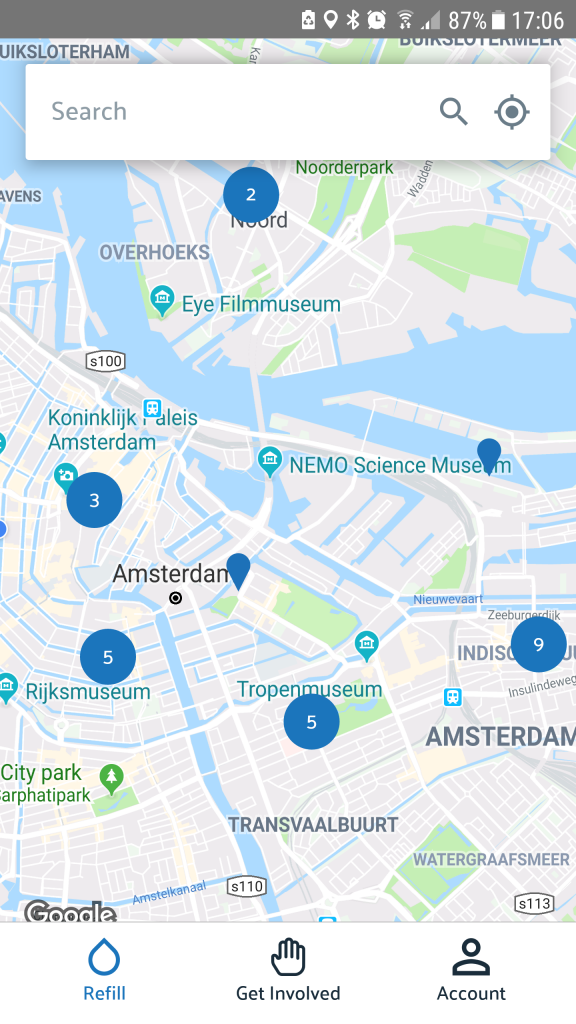Dopper, Klean Kanteen, Retulp, Mizu, Camelbak. All these brands have designed their own bottle, but share the same goal: to reduce single-use plastics around the world. You might have read my blog about my BFF, my Best Bottle Forever. A bottle you always carry with you and want to keep refilling. I was curious to learn more about the motivation from the people behind a bottle brand. What is their mission? Who are their heroes? Time for a chat with Richard Gabriël, founder of Retulp.
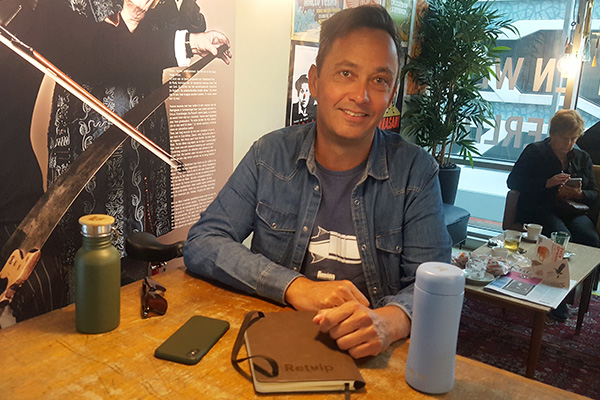
THE PACKAGING DILEMMA
We meet at the train station lounge in the Hague. When ordering a tea, we both feel some frustration and sadness, as sugar, honey and the little cookies are wrapped in plastic. “If I were to open a restaurant I would use beautiful sugar bowls and big honey pots”, Richard comments. I already like his thinking! But what about the packaging Retulp uses?
Retulp bottles are being sold in a box made from recycled cardboard, with a small leaflet inside. Richard tells me he’d prefer to sell his bottles without any packaging material, yet most retailers do require this. Even EkoPlaza, an organic supermarket chain. They reason that consumers are less inclined to buy the bottles with a few fingerprints on it. A nice exception is Dille & Kamille (a home, garden and kitchen utensils store), who prefers to sell Retulp bottles without packaging. Interesting, I always thought the brands were to blame, but it turns out to be a lot more complicated.
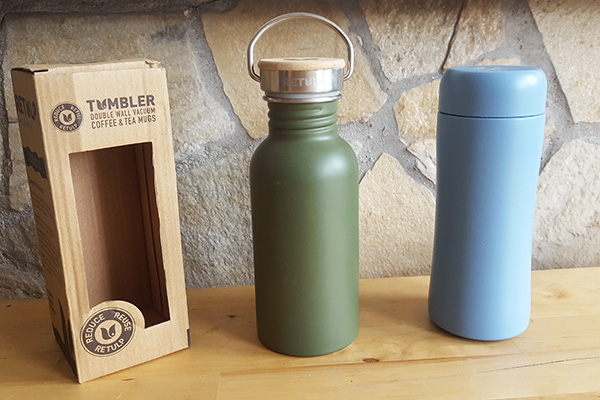
ABOUT RETULP
Retulp was established in 2014 in Apeldoorn, the Netherlands. Back in the days, Richard was inspired by Plastic Soup Surfer Merijn Tinga. Local and global awareness on the plastic soup issue has increased enormously in the past three years. Retulp’s slogan is ‘Refill to fulfill’. Beside the stainless steel water bottles, they sell their tea/coffee thermos mug (see image below) and a biobased bottle (made from sugar cane). Richard feels the current incentives to refill hot drinks are too limited. “Starbucks give you €0,05 discount, while most staff perceives it as a hazard.” Retulp also considers to add lunch & dinner boxes in the future “so you can refill everything. Water, tea, your Thai takeaway meal”. Not surprisingly, Richard perceives ‘zero-waste sisters’ Jessie and Nicky Kroon as true heroes.
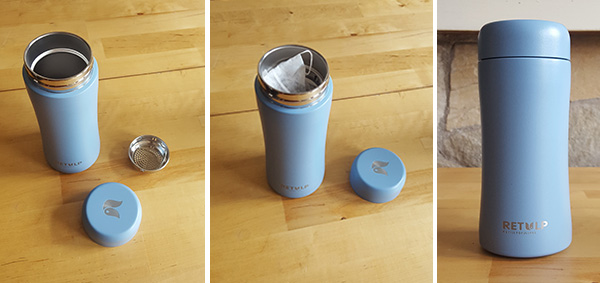
RECYCLING VERSUS REUSING
I was wondering what Richard thinks about overconsumption. In his opinion, there is too much focus on recycling. Most of all we need to start buying less products. Secondly, try to buy sustainable products. I agree with this. In practice, recycling often means downcycling. The recycled raw material no longer has the purity of the original raw material. Although recycling is important, reusing and reducing is more effective.
We also talk about the perception of product value related to price. Nowadays, you can buy a reusable bottle for a few euros (e.g. made from Polypropyleen, plastic no. 5). This lowers the threshold for people to buy one. But we both feel ‘too cheap’ could have a high price. Do you look after your cheap bottle? If you lose it, you just buy a new one. We see the same thing happening in the fashion industry. People are more careful with a €100,- shirt than one that only costs €13,-.
MISSION INDISPOSABLE 2020
Back to Retulp. For 2020, Retulp aims to avoid 20 million disposable plastic bottles and to donate 20 million liters of drinking water to people in developing countries. They do this through Mission Indisposable 2020. For every bottle sold, 1.000 litres of clean drinking water will be donated. I’ll try to give you an update next year on the progress.
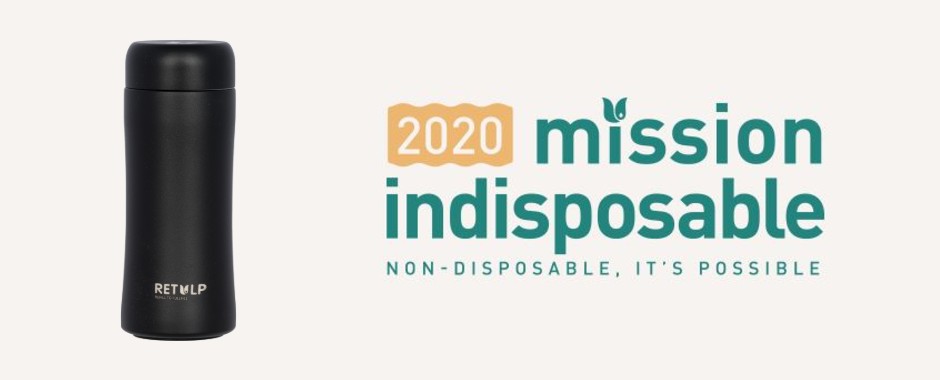
READ MORE
Two hours fled by and we had to end our interesting conversation. Thanks a lot Richard, for sharing your thoughts with me. Keep up the Dutch Design spirit! To read more about Richard Gabriël, Retulp and Mission Indisposible or to get your own Retulp bottle (also available printed or engraved for companies) visit the Retulp website.
